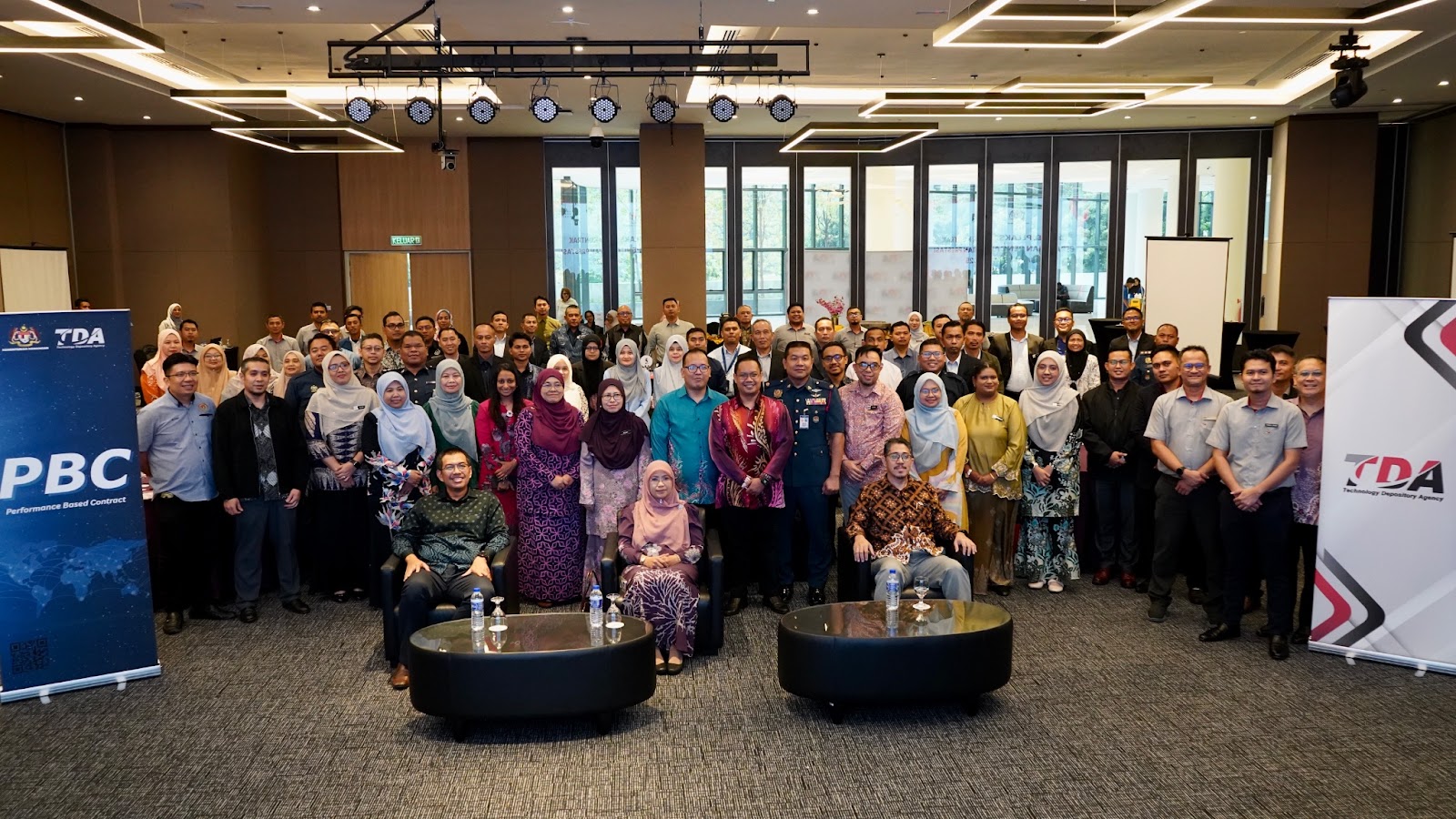
TDA-Led RM7 Billion in Performance-Based Contracts Across Government Agencies
Malaysia has achieved a new milestone in government procurement reform. The Technology Depository Agency Bhd (TDA), an agency under the Ministry of Finance (MOF), announced that it has spearheaded more than 86 Performance-Based Contracting (PBC) agreements, valued at over RM7 billion.
These contracts involve a wide range of ministries and agencies, underscoring Malaysia’s push to make public spending more accountable, transparent, and performance-driven.
The announcement was highlighted at the Malaysian PBC Practitioner Workshop 2025, where representatives from across government bodies and agencies gathered to exchange experiences, discuss challenges, and strengthen cooperation. The progress signals a shift in Malaysia’s procurement philosophy from compliance-driven processes to measurable outcomes that directly benefit citizens.
What is the PBC Model?
Performance-Based Contracting represents a departure from traditional government procurement. In the past, contractors were rewarded for following procedures and meeting basic technical specifications. This often led to an emphasis on paperwork and process compliance, without guaranteeing that outcomes matched the investment of public funds.
With PBC, the situation changes dramatically. Payments are tied to measurable results. If targets are achieved or exceeded, contractors are rewarded. If performance falls short, penalties or corrective actions apply. This ensures that funds are linked directly to delivery, not simply to activity.
Globally, PBC has been practiced in countries such as the United States, Australia, and across Europe. It is particularly common in defense, aerospace, and infrastructure projects where efficiency and reliability are paramount. By adopting this model, Malaysia is signaling its commitment to international best practices, while tailoring them to suit local needs.
TDA’s Central Role in Procurement Transformation
The Technology Depository Agency has been pivotal in rolling out PBC nationwide. Its designation as the PBC Centre of Reference (PBC COR) means it is the go-to body for guidelines, capacity building, and monitoring. TDA has been responsible for developing frameworks, training officials, and assisting ministries in designing and managing performance-based contracts.
According to TDA Chief Executive Officer, Dr Sharoul Jambari, the achievement demonstrates how far Malaysia has come in shifting government contracts away from process-driven systems. He explained that by embracing PBC, ministries and agencies are showing their determination to ensure every ringgit spent delivers value to the rakyat.
The upcoming Government Procurement Bill (RUU PK), set to be tabled in Parliament this week, is expected to significantly strengthen Malaysia’s adoption of (PBC) and the Industrial Collaboration Programme (ICP).
Dr. Sharoul Jambari states that the absence of a specific law has created gaps in procurement enforcement.
“Although both programmes have proven to deliver significant benefits to the government in terms of governance, technology development and industry growth, there are still challenges in implementation because there is no legal enforcement,” he explained.
Dr. Sharoul said that the new Act would be a turning point. “With the Procurement Act in place, more government opportunities can be executed using the ICP and PBC concepts,” he said.
By August 2025, more than 86 contracts had been executed or were ongoing. Collectively worth over RM7 billion, these contracts cover some of Malaysia’s most strategic agencies and ministries, including:
- Ministry of Finance
- Ministry of Defence: Royal Malaysian Navy, Royal Malaysian Army, Royal Malaysian Air Force
- Royal Malaysian Police
- Immigration Department
- Ministry of Home Affairs
- Malaysian Maritime Enforcement Agency
Many of these contracts involve maintenance, repair and overhaul (MRO) services. Since July 2022, PBC has been made mandatory for all MRO projects valued above RM25 million. This means critical assets such as naval ships, aircraft, immigration systems, and policing infrastructure are now managed under performance-linked agreements. Contractors must ensure uptime, cost efficiency, and service readiness.
The scale of these contracts reflects both the government’s willingness to trust the model and its recognition that PBC can be applied across diverse sectors, from defense to public security and finance.
Why RM7 Billion in PBC is a Turning Point?
This RM7 billion milestone is more than just a number. It represents a structural change in how Malaysia manages taxpayer money. Traditional contracts often resulted in wastage or inefficiencies because contractors were incentivized to meet requirements on paper, not outcomes in practice. With PBC, accountability is built into the system.
The benefits of this shift are significant. Among the most important are:
- Maximizing taxpayer value by ensuring money is spent on tangible results.
- Improving accountability through penalties for underperformance and rewards for success.
- Encouraging innovation since contractors must find creative ways to achieve outcome-based targets.
- Strengthening public trust by ensuring transparency in contract delivery.
- Reducing inefficiencies in government operations and promoting long-term cost savings.
In practical terms, this means that when the government invests in maintaining a naval vessel or upgrading immigration systems, the results must be visible and measurable. Contractors are no longer paid merely for effort, they are compensated for the impact of their work.
Highlights from the PBC Practitioner Workshop 2025
The recent PBC Practitioner Workshop provided a platform for ministries and agencies to reflect on progress and identify areas for improvement. The workshop emphasized the importance of collaboration across government bodies, since performance-based contracts often span multiple agencies.
Sessions explored challenges such as building internal capacity, refining monitoring systems, and aligning procurement laws with the PBC framework. There was also discussion on how to support local industry players, especially small and medium-sized enterprises (SMEs), in adapting to performance-based risks and opportunities.
The event also reinforced TDA’s role as the PBC Centre of Reference. Agencies were reminded that TDA would continue to provide technical guidance, refine policies, and ensure alignment with international practices. The workshop ended with a clear message: PBC is no longer a pilot experiment, but a permanent feature of Malaysia’s procurement ecosystem.
Malaysia’s journey mirrors lessons from abroad. In the United States, PBC has been widely applied in defense contracts to ensure that aircraft and ships remain combat-ready. Europe has applied the model in public infrastructure and healthcare, tying payments to outcomes such as reduced waiting times or improved reliability. In Australia, PBC is a cornerstone of defense maintenance, ensuring contractors share risks and rewards with government agencies.
By adopting a similar approach, Malaysia is not only raising the bar domestically but also positioning itself as a regional leader in Southeast Asia for transparent and accountable procurement. This will strengthen investor confidence, enhance governance standards, and contribute to the broader goal of becoming a high-income, resilient economy.
With RM7 billion already committed, Malaysia is looking ahead to embed PBC across more sectors. TDA and the Ministry of Finance are working on policy refinements that will make the approach more robust and adaptable. Over time, PBC could extend beyond defense and enforcement agencies into areas such as healthcare, education, infrastructure, and digital transformation projects.
Shahriena Shukri is a journalist covering business and economic news in Malaysia, providing insights on market trends, corporate developments, and financial policies. More about Shahriena Shukri.




